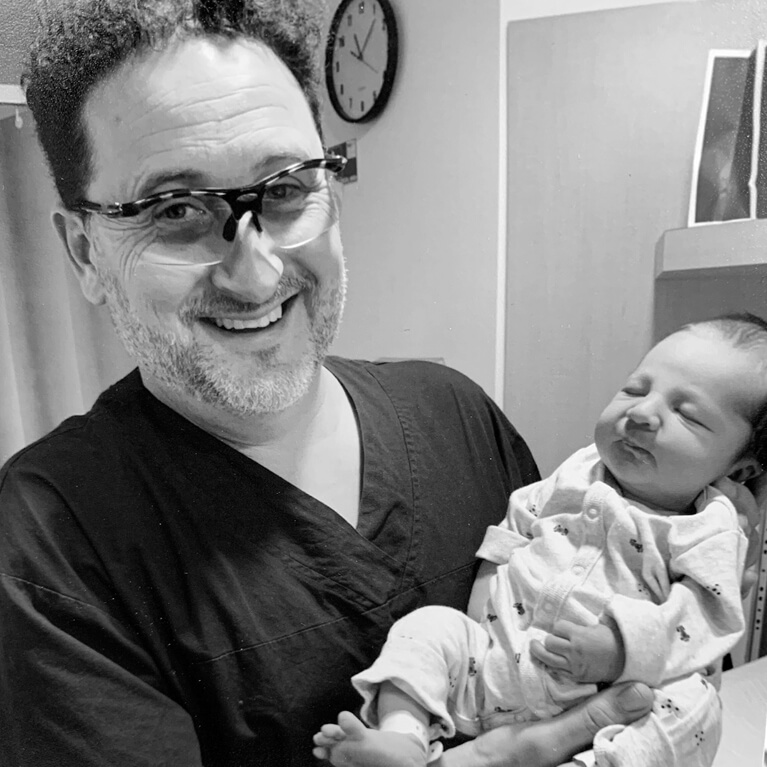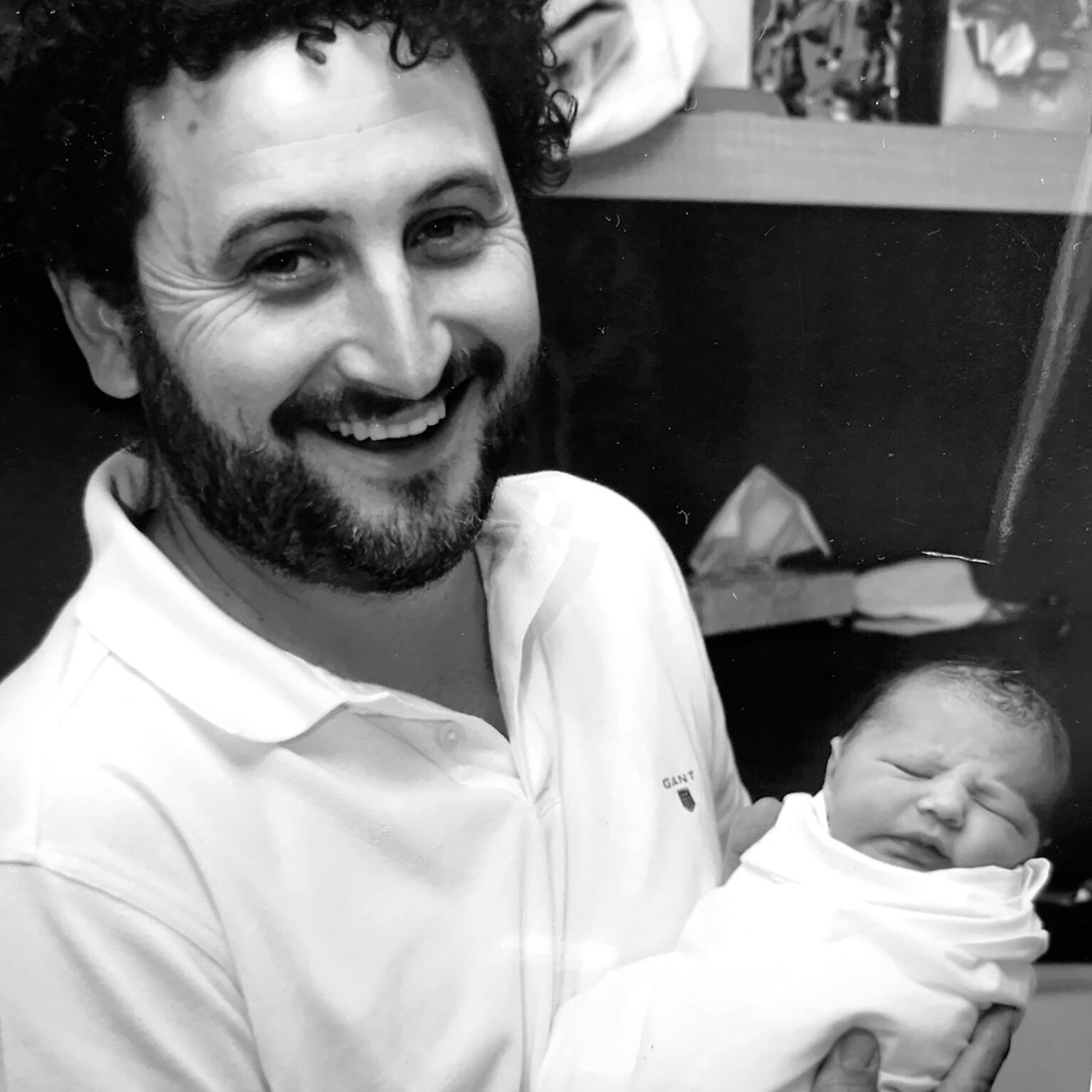Ask David
First pregnancy related questions
What is your advice to fall pregnant?
If you are planning or trying to fall pregnant, there are a few general health and fertility tests that I can organise for you. I believe that being well informed is important even in this early stage. I can help you with pre-conception counselling and general women’s health advice.
I think I’m pregnant: what are the next steps?
A first step is to get confirmation. A blood test will confirm that you are pregnant and this is generally a conversation you have with your GP.
Alcohol: can I have 1 glass a week whilst pregnant?
No amount of alcohol has been proven safe at any time during pregnancy. There's no safe time to drink alcohol during pregnancy.
Exercise: what do you advise?
Moderation. It’s not a good time to start training for a marathon. Regular moderate activity helps you maintain a good fitness level and it helps to prepare your body for when you give birth.
Nausea and vomiting: should I be worried?
These are common symptoms in pregnancy.
In which week is miscarriage most common?
Weeks 0 to 6 are generally the weeks with the highest risk of miscarriage.
How do I choose an obstetrician and a hospital?
This is a very personal choice. If you live at an acceptable distance from St John of God Murdoch Hospital, then it would make sense to choose our hospital over one in Joondalup or Midland. If you want your obstetrician to oversee your journey and support you from your first appointment until after the birth of your baby, then please call our team and I will be happy to help you.
What to expect from my first obstetrician visit?
We perform standard tests which may include a scan, we look at your medical and family history and we discuss your overall health, and your requirements for your antenatal care.
I’m 40+yo: Am I high risk?
In general, mothers over 35 are at higher risk of complications. Certain genetic risks become more frequent in mothers over 40. The risks of miscarriage and stillbirth are also higher in mothers over 35.
How do I know if my labour is starting?
You may feel a variety of symptoms. It may be obvious, with intermittent abdominal pain with hardening of your womb, or may be vague, with back pain, hip pain or sometimes mild period pain. Important to know, there is nothing wrong with false alarms. We are much happier to send someone home with constipation than have you unexpectedly progress into advanced labour at home.
Previous pregnancy related questions
Preeclampsia in a previous pregnancy
If you have had preeclampsia in a previous pregnancy, we will discuss it as part of your medical history and take it into account as we plan your antenatal care for this pregnancy.
Can I have a natural birth after a previous c-section?
VBAC or vaginal birth after c-section is a much discussed topic. Everything will depend on the circumstances of your earlier c-section and we will discuss your personal situation at your first appointment, or when we discuss your preferences for the birthing method.
My previous baby was premature: will it be the same?
Every pregnancy is different and there is no reason to assume that a premature birth in a previous pregnancy, is a cause for concern. However, if your previous baby was born before week 31, there is an increased risk of a repeated premature birth. Ultrasound monitoring of your cervical length and use of progesterone supplements are typically used to identify and reduce the risks of preterm birth.
Gestational diabetes: will I have it again?
Research shows that there is a 45-65% chance you will have it again, if you had gestational diabetes during a previous pregnancy.
High blood pressure during my previous pregnancy
If the high blood pressure was caused by preeclampsia, chances are that you might suffer from high blood pressure during a next pregnancy too.
I couldn’t breastfeed last time: will it be the same?
It depends on what caused the challenge after your last pregnancy. We will always discuss this as part of your antenatal care and look ahead at your postnatal care needs as we plan it, before you give birth. This may include breastfeeding and lactation consultancy. Often subsequent babies are different, and can have different shaped mouths. Your breasts are often different and the milk production may also change in subsequent pregnancies.
I’m 40+yo and have been pregnant before: Am I high risk?
Although there are many stats out there and articles that weigh the risks of pregnancy after 40, it’s always important to look at your personal circumstances, and your health at the start of your pregnancy. That’s why I recommend to not get overly involved in online research, and to focus on managing your pregnancy, and managing any risks we may identify along the way.
Previous miscarriage related questions
Anxiety during pregnancy after previous miscarriage(s)
I totally understand that you may be extra anxious about your pregnancy after having gone through the experience of a miscarriage. Part of my role is to help you manage these feelings of anxiety so you can be as calm as possible at any stage.
What are the chances of having another miscarriage?
In general, miscarriage can be caused by various factors, including genetic factors. Genetic pre-counselling occasionally helps to identify fertility challenges and it is part of my services as an obstetrician.
Is it easier to get pregnant after a miscarriage?
Some studies show that trying to conceive within three months after a miscarriage slightly increases your chances of falling pregnant.
How fast can you get pregnant after a miscarriage?
As soon as two weeks after the miscarriage is possible and may even be beneficial however the WHO still recommends waiting 3-6 months. This should be individualised to your own circumstances, taking age, obstetric history, social and psychological factors into consideration.
How can I reduce my risk of miscarriage?
Managing your general health, excluding any genetic conditions that can affect your or your partner’s fertility, and analysing your general lifestyle habits with your doctor, are a good starting point.

IVF related questions
IVF and positive pregnancy test: now what?
If you have fallen pregnant after IVF, you may suffer from higher anxiety levels. It’s my role as your obstetrician to look at your fertility journey, your medical and obstetrics history, and to plan your antenatal care accordingly.
Anxiety: will my IVF pregnancy last?
It is a normal emotion to be fearful and worried when you have been on a fertility rollercoaster journey. At all times, we will make sure we check in with your anxiety levels and do everything we can to reassure you and inform you about every step of the journey.
Rollercoaster: how do I deal with my emotions?
Emotions around pregnancy are deeply human. Having helped thousands of women on their journey, I have learned to listen and help, to offer support and to look at the bigger picture of your journey, not just at your scans and test results.
Is IVF pregnancy high risk?
Although some articles will generalise and state that any IVF pregnancy is high risk, it’s worth noting that in general, IVF pregnancies often occur in older mums (over 35), which places them in the high-risk category merely because of their age.
Can I have a natural delivery when conceived via IVF?
Once your pregnancy is underway, there is no direct connection between the conception method (natural or assisted reproductive medicine) and the delivery method (natural/vaginal or c-section).
Are miscarriages more common with IVF?
Some studies show that if a women has a low egg count in an IVF procedure, there is an increased risk of miscarriage.
More questions?
If you any other question, please contact my practice and we will answer it if we can. Sometimes, the online information overload may give you a feeling of overwhelm, and it’s good to check in with my team and I, to tap into our decades of experience. Sometimes common sense is more powerful than a topic found on Google and we look forward to helping you get clear about any pregnancy-related question you may have.
My practice is at St John of God Murdoch Hospital and if you live in the southern part of the Perth metro area (South of The River, Perth Hills, Fremantle or Mandurah area), you may want to explore planning your delivery at Murdoch. In that case, I look forward to helping you on this journey to bring this new miracle into your life.
Obstetrician Murdoch Hospital
Get in Touch
Suite 60, 100 Murdoch Dr,
Murdoch WA 6150
Phone: +61 8 9312 7126
Fax: +61 8 9310 8145





